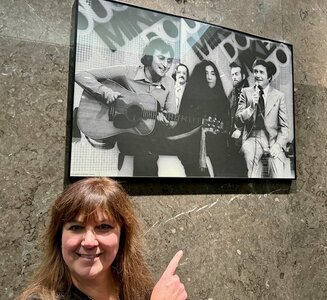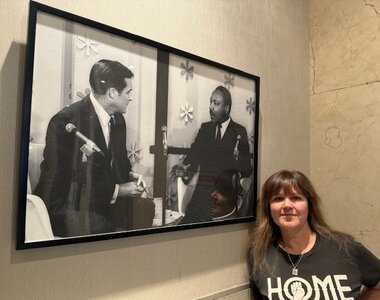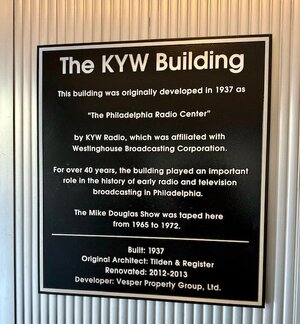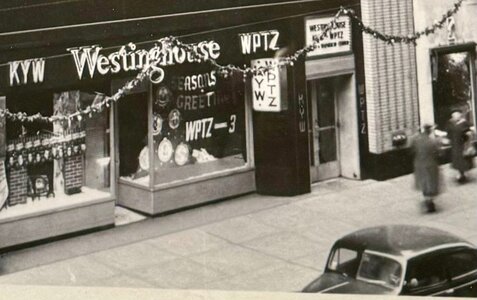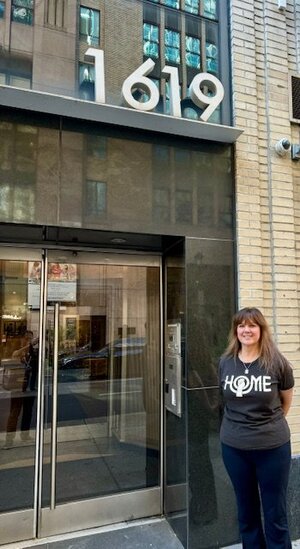'Daytime Revolution' documentary essential viewing for John & Yoko faithful
New documentary chronicles John and Yoko’s groundbreaking week on daytime TV.
By Bill Kopp, Goldmine.
In 1972, most Americans had limited set of choices when it came to television viewing. Most markets – even massive ones like New York City, Chicago and Los Angeles – had only three VHF stations, one each for the three major networks: ABC, CBS and NBC. In addition to programs created by and for those “big three,” outside production companies created TV shows that they sold (syndicated) to the networks’ local affiliates. Those syndicated programs filled much of the airtime on weekdays in the spaces between morning news, soap operas and evening news.
The Mike Douglas Show was among the most popular weekday programs of its type. By its very nature, Douglas’ talk and variety show was unabashedly mainstream; it was also that way because it had to be. A defining quality of syndicated programming was accessibility; wide appeal was necessary to ensure that the largest number of viewers – predominately housewives – would tune in on a daily basis. And they did: In 1972
The Mike Douglas Show was broadcast five days a week on more than 170 stations nationwide, and it drew a daily audience of over six million viewers.
Against that backdrop, the prospect of Mike Douglas inviting a guest who courted controversy was somewhat unlikely. With very few notable exceptions, Douglas’ guests and co-hosts tended toward the middle of the road both culturally and politically. So it was a shock of seismic proportions when Douglas invited John Lennon and Yoko Ono to co-host his show for an entire five-day run.
In 1972, Lennon and Ono were often in the news for their increasing association with counterculture, left-wing figures like Jerry Rubin of the Chicago 8, Black Panthers leader Bobby Seale, and the like. Their music had taken a gritty, politically oriented turn on the album
Sometime in New York City, a record full of songs about women’s liberation (Ono’s “Sisters O Sisters”) and lethal quelling of prison riots (“Attica State”). And they were outspoken in their opposition to both the Vietnam War and then-president Richard Nixon.
But it happened: the couple co-hosted five consecutive hour-long episodes of the program. Moreover, Douglas gave free rein to his co-hosts; Lennon and Ono chose their guests. So it was that American housewives were treated to intelligent discussions featuring Rubin, Seale, consumer advocate Ralph Nader, George Carlin, folk-protest singers, a macrobiotic cook, a biofeedback authority… and Chuck Berry.
Lennon and Ono proved themselves remarkably good co-hosts. And Douglas deserves copious praise for bringing reasoned discussion of anti-war activism, racism, and corporate greed to daytime viewers on his show. It’s safe to say that precious few of those who tuned in to watch John, Yoko and Mike chat with Rubin, Seale and the others had ever seen those individuals presented in such an even-handed, forthright and (believe it or not) entertaining manner.
While the episodes featuring John and Yoko have long circulated among collectors – and now and then as high-priced official releases on DVD – it’s only now, more than half a century after the broadcasts – that a documentary filmmaker has tackled the subject. Drawing extensively upon the footage from those five episodes and adding current-day retrospective interviews with many of the surviving production staff and guests, director Erik Nelson has created a worthy documentary that underscores the cultural significance of the historic week.
Nelson is not at all heavy handed in his approach, eschewing a narrator and instead allowing the archival footage to make its own points. Contemporary commentary from the guests and staff adds weight, and makes clear that even in 1972, everyone involved appreciated that something important was happening.
Daytime Revolution looks to have been produced on a shoestring budget. But because of its nature, that does not detract from its impact. For anyone who hasn’t seen the original broadcasts – and in fact even for those who have –
Daytime Revolution is essential viewing. It’s a reminder of a brief time in which the counterculture and the mainstream met and – if only for five days – peacefully coexisted.
Daytime Revolution premiered October 9 in select theaters nationwide.




